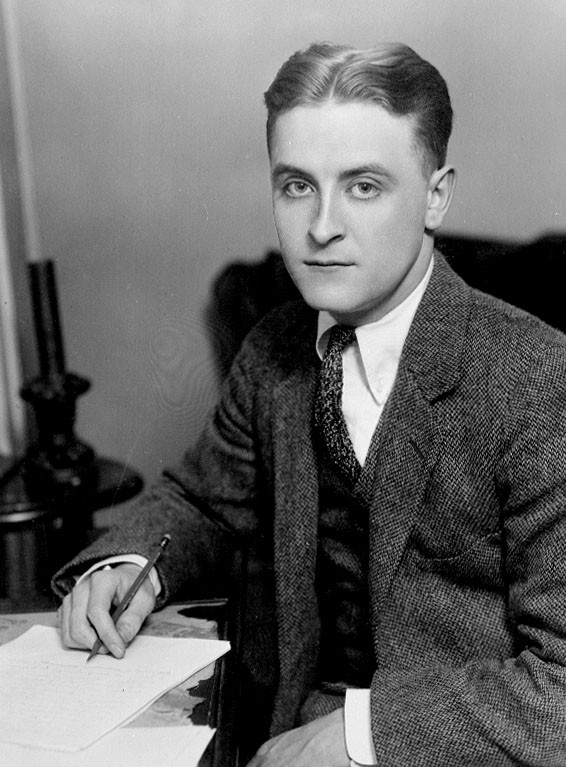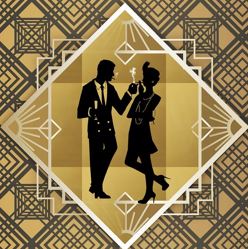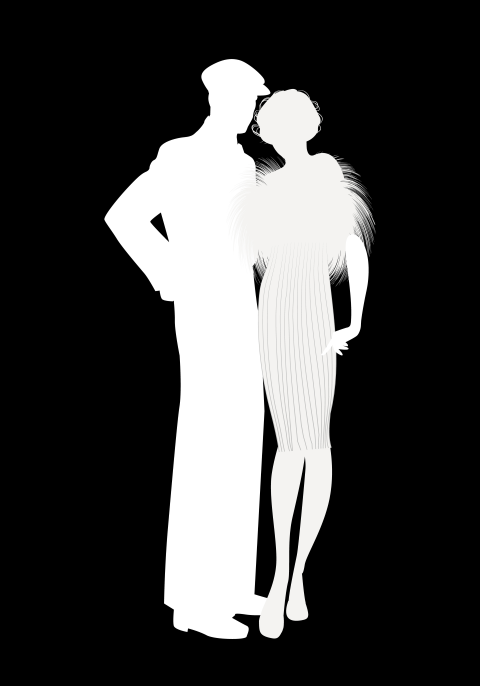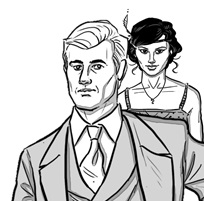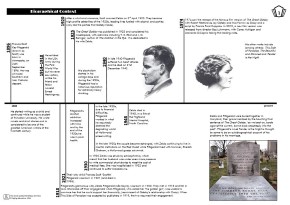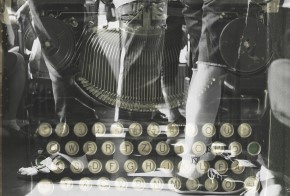Fitzgerald, F Scott
It is not always easy to feel sorry for a man who had fame and fortune – especially not someone who is often so celebrated for having written, the 'great American novel' – but, somehow, with F Scott Fitzgerald, sympathy even overshadows my awe for him as a writer. At the end of The Great Gatsby, the title character is left with nobody, and died with failed dreams. While I am sure that more people attended Fitzgerald's funeral than they did Gatsby's, the author is not too dissimilar to his most famous character.
A great deal is known about Fitzgerald and his life, the most fascinating source for this being his 'business ledger'. In this, he outlines his life, his works, and money earned. Fitzgerald grew up a writer, and impressed others with his literary skills even as a teen, despite his notoriously poor spelling! At university, he chose to prioritise his writing over his academic studies, and failed his degree course; perhaps luckily, for fans of his novels! However, despite the acclaim attached to his novels now, his first novel attempt was rejected. Even The Great Gatsby and Tender is the Night were much less popular upon publication than they are now; the New York Times 1925 review only went so far to call The Great Gatsby ' a curious book'. Fitzgerald dismissed his short stories (such as the famous 'Curious Case of Benjamin Button'!) as 'trash', written purely for a fee, and he found his movie work in Hollywood degrading. He was never to see the extent of his roaring success. I see it as nothing less than a tragedy that Fitzgerald died feeling any sort of failure.
His relationship to Zelda Sayre was tumultuous and has always intrigued me – this, alone, is novel-worthy in my opinion. He fell in love with the 'golden girl' immediately, but their relationship was clouded from the offset by Fitzgerald's money problems and their subsequent broken engagement. Later, in Hollywood, Fitzgerald's affair, his alcoholism and Zelda's deteriorating state of mental health (and eventual institutionalisation) led to further problems between the two of them and they became estranged. Fitzgerald had lived a wild youth throughout the infamous jazz age (see his essay 'Echoes of the Jazz Age') but this was now over, and his excessive alcohol intake was taking its toll on him; he was very ill indeed in later life, in the run up to his untimely death.
Fitzgerald's novels are not fun, are not light-hearted, and are not always pleasant reads. But they are 'real'. He has a sharp and perceptive insight into life and what it means to be human, and he is capable of making the reader feel very uncomfortable with these perceptions. I must have read The Great Gatsby at least twenty times over the years – probably more – and every time I read it, I find something new. Fitzgerald's language is so rich, vibrant, so full of vitality and meaning, that I defy anyone not to find some sort of beauty within the pages. He is a master of language, and his novels are works of art, crafted to perfection. Richard Yates goes so far to call The Great Gatsby a 'miracle of talent' and I would extend this comment to Fitzgerald's work in general.
So much for the 'Great Gatsby' – it is Fitzgerald himself, regardless of all his faults, who I believe is truly 'great'... and I say this without any trace of irony.
